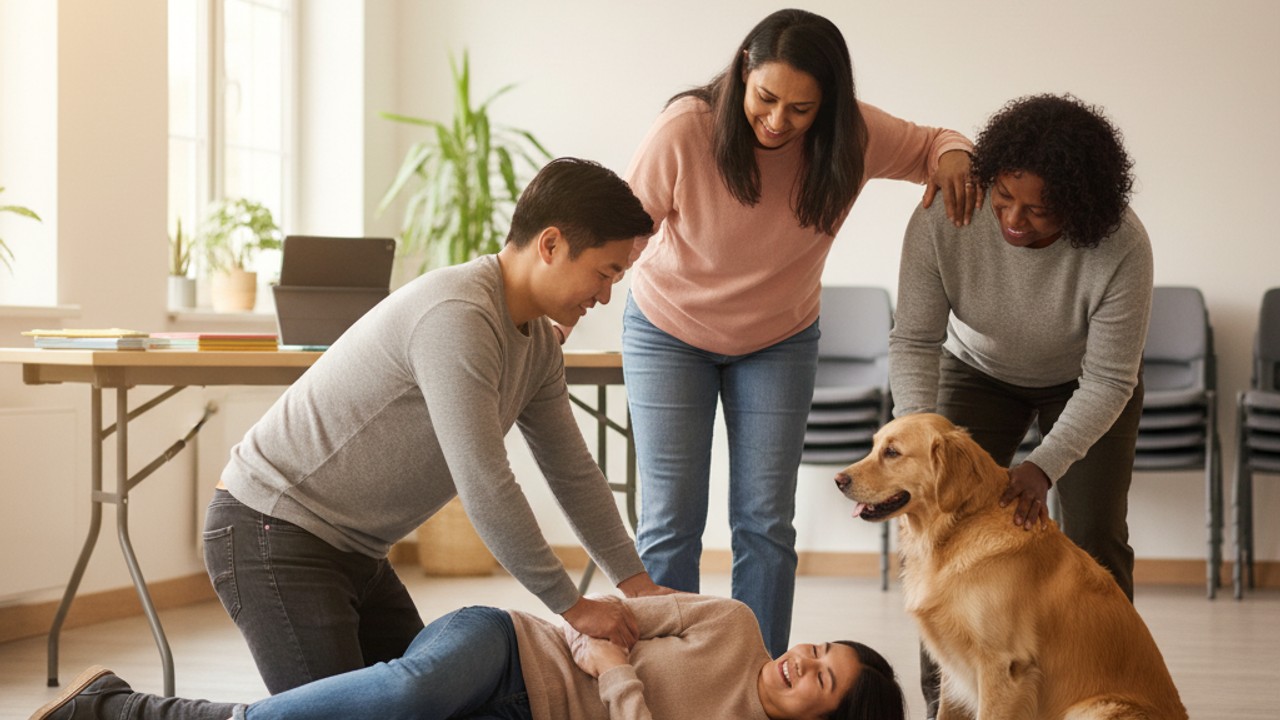Almost 1 billion people worldwide were living with a mental disorder in 2019, according to the World Health Organization's landmark report — that is roughly one in eight people on the planet. That figure is not a number; it's a network of faces, animals, carers, and communities asking for better care. See the WHO report: WHO World Mental Health Report (2022).
When health systems strain, simple interventions break down. Epilepsy alone affects about 50 million people globally, and in the United States about 1 in 26 people will develop epilepsy in their lifetime. These are not isolated challenges; mental health and neurological conditions intersect with poverty, displacement, and a lack of trained providers. Read more at the WHO epilepsy fact sheet and the CDC: WHO Epilepsy and CDC Epilepsy.
Frontline Work and Training
One powerful solution is training. The WHO's Mental Health Gap Action Programme (mhGAP) provides tools to train community health workers to identify and treat common mental, neurological and substance use disorders where specialists are scarce. Scaling training turns isolation into support and delayed care into early intervention. Learn about mhGAP: WHO mhGAP.
Non-profits are stepping into this gap. Organizations like the Epilepsy Foundation provide education, advocacy, and resources for families living with seizures (Epilepsy Foundation), while Médecins Sans Frontières integrates mental health into emergency medical responses in conflict and displacement settings (MSF mental health).
Animals, Therapy, and Recovery
Animals are often part of recovery stories. Research collected by the Human-Animal Bond Research Institute shows measurable mental health benefits from animal companionship and structured animal-assisted interventions. Animal welfare groups not only rescue animals but also run programs that pair pets with people who are isolated or recovering from trauma. Explore HABRI and global animal welfare work: HABRI and Humane Society International.
"Connection heals. Training gives people the tools to make that connection happen at scale."
That connection matters in international crises too. Refugee and humanitarian agencies are incorporating mental health and psychosocial support into relief, recognizing that care must cross borders and cultures. See UNHCR resources on mental health and psychosocial support: UNHCR MHPSS.
How You Can Help
Change feels possible when it is practical. Here are ways to act:
- Learn and train: Take a mental health first aid or mhGAP-informed training; share skills in your community. Example: Mental Health First Aid.
- Support specialist non-profits: Donate to or volunteer with organizations such as the Epilepsy Foundation (epilepsy.com) or MSF's mental health programs (msf.org).
- Advocate for policy and funding: Contact local representatives to prioritize community mental health, training, and international support for refugees and crisis-affected populations.
- Adopt or foster: If you can, adopt or foster animals through reputable shelters; these bonds help both people and animals thrive. See Humane Society International for global efforts: hsi.org.
We are not helpless. Small acts of training, rescue, donation, and advocacy ripple into systems that can prevent suffering and enable recovery. Hope is built by people learning, showing up, and asking for better. If one person reading this signs up for a training, supports a local epilepsy or animal welfare organization, or reaches out to someone who is struggling, that is a start. Today, choose one action and make it the first step toward healing for someone near you or far away.







